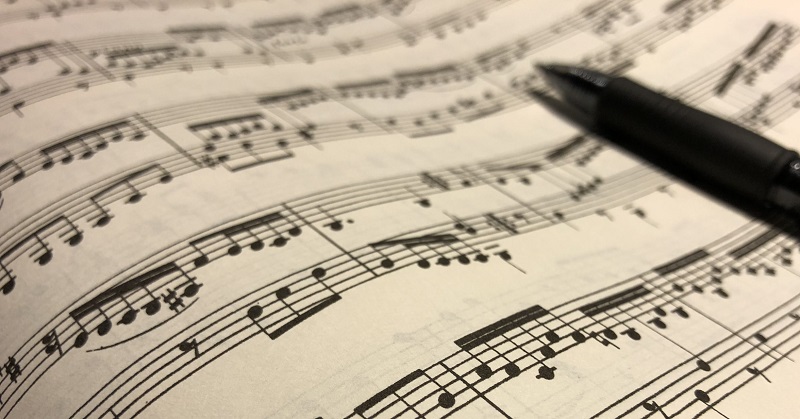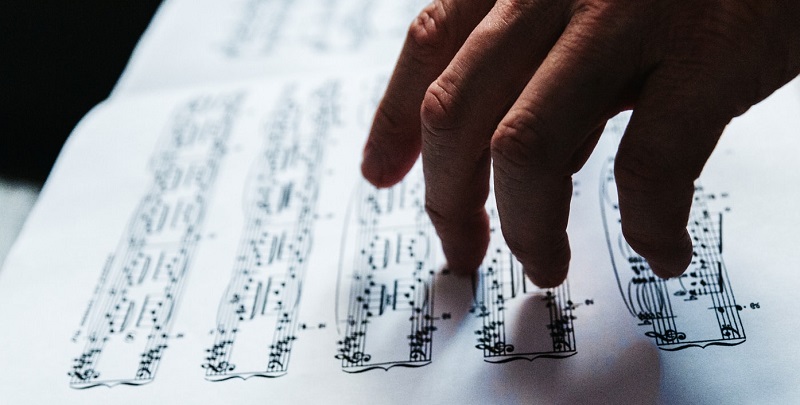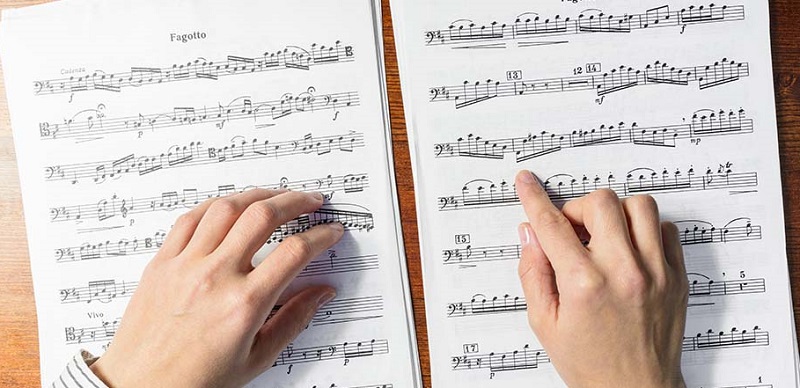Table of Contents
The Best Way How to Memorize Music
Two things may have impressed you about virtuosic musicians when you’ve seen them live. The technique is the first element to consider: great musical performances must rely on talent, breath control, fluidity of rhythm, and performance flair. Second, the musician might have been playing from memory. It’s one thing to be able to play virtuosically, but memorizing music is another thing altogether.
Memorizing is an essential part of music education for many students. Performers who want to excel should absolutely go for it. Memorizing music gives you more artistic freedom and helps you master improvisation quickly. For some reason, audiences prefer hearing musicians who have memorized a piece rather than reading from a score.

Exactly What is Memorization in Music?
As a musician, memorizing music means being able to perform a piece without consulting a score, lead sheet, or another form of sheet music.
There is a difference between memorization and improvisation, for example, in the solo sections of a jazz tune. In improvisation, music is composed in real-time; in memorization, the music is played without ever looking at the script.
What is the Importance of Memorization in Music?
It depends on the genre of music you are playing as to how important memorization is. The music of large orchestras, for instance, does not tend to be memorized by the musicians. If you have attended a symphony performance, you have likely seen musicians refer to sheet music rather than playing from memory.
Contrary to this, orchestral soloists tend to memorize their repertoire. They’re the soloists who play in front of the larger group, like piano players, violinists, cellists, and singers.
In other genres, like pop, rock, reggae, country, hip hop, and R&B, memorizing is the norm. When Carlos Santana plays “Smooth” live, his audience expects him to have memorized the song, which isn’t so expected of a classical audience.
Audiences expect jazz artists to memorize a lot, although that’s only a small part of their job since they’re mostly known for improvising.

These Tips Will Help You Memorize Music Faster
These three methods are used by musicians to memorize a piece quickly.
1. It is Appropriate to Sing Through Instrumental Passages.
When trying to memorize music for trumpet, violin, guitar, bass, or any other instrument, try singing your part aloud. Use solfege syllables (do, re, mi, etc.) if you are familiar with them. It is not just about pitch when it comes to singing. Practice rhythmic durations, dynamics, and chord progressions with your voice.
2. Try Practicing at Different Tempos.
You don’t have to practice your piece at performance tempo. You can play it very slowly and very quickly. Changing your performance will keep you from memorizing by rote and keep your mind engaged.
3. You Can Transpose to a Different Key.
Try playing your piece in a different key if you’re an advanced musician. Use Roman numeral analysis to think about chord progressions, and cycle through different keys. Here’s the idea: To get you away from rote memorization and to really internalize how music works.

Memorization Tips and Tricks
The task of memorizing music is easy for some and hard for others. It can take you any amount of time to memorize a piece, depending on its length and difficulty. The following tips and tricks will help you nail down the perfect memorization technique.
- Make sure that your fingerings and bowings are clearly defined before you begin.
- It is important to repeat the music many times so that it becomes muscle memory.
- Trust your muscle memory when performing-do not overthink.
- Be sure to continue to use the music, even when it has been memorized, in order to prevent forgetting important details.
- You may want to divide the music into different sections based on emotions, colors, or other ideas.
- You should run through the piece in your head away from the instrument. Before you go to sleep, give it a try.
- You should be able to sing the entire piece of music either out loud or in your head.
- In your mind, review the fingering for the entire piece of music.
- You should be able to start at any point in the music.
- Prepare a scheme for the music that repeats; understand how each repetition is slightly different or the same as the previous one.
The Best Ways to Prepare for a Performance
Once you have memorized the piece, you should adopt a performance mindset. Using these techniques, you can go from playing well in private to playing well in front of large audiences.
- Prepare yourself on a technical level so that you can let go and play the music freely.
- The technique should be practiced musically; the technique should be corrected within the context of the music. If you are working on intonation, you should always play with a beautiful sound from the bow, as well as the proper dynamics and articulation required by the music.
- You should practice with the same expressive intentions you would use if you were on stage performing for an audience, even when practicing slowly.
- Keep practice to a minimum on the day of the performance.
- If you are concerned about a particular passage on performance day, practice it, but do not overdo it.
- Play the piece enough on performance day so that it doesn’t feel like new music on the day of the performance.
- Give yourself permission to not worry about technique when you are on stage.

In the race to master the art of memorizing music, there are several caveats we need to keep in mind. Some of the most common questions that people have are listed below.
How Hard is it to Learn a Song by Ear?
It’s possible to learn a song without sheet music and is common for many people. How many songs have you learned by listening to the radio? That’s how you learn a song by ear. How hard or easy it depends on what kind of learner you are. People who learn by example and by doing will like this method. For those who prefer to view and read the material they are trying to learn, this may be more challenging.
Training your hearing to detect pitches and notes more accurately is the most effective method for improving your ability to learn a song by ear. Choose a piece of music that you are familiar with and that you know the notes of. Take the time to study how those notes sound so that you can identify them in other situations as well. If you do this, you will be able to refer to the notes in your head when someone presents you with a song that you will only be able to learn by hearing.
How Can I Memorize a Song in Another Language Fastest?
When you don’t know the language, memorizing a song can be tough. If you’re not familiar with the language or don’t completely understand what the song is about, it’s harder to break it down into phrases and sections you understand. If you want to memorize songs like this, read the lyrics in their native language first. There might be a few words or phrases you recognize. Get the song translated into your language, too. As you sing, you can follow the storyline of the song, which will make it easier to memorize.
Learning a foreign song also requires repetition. Pay attention to the inflections in the lyrics and the melody as you listen and practice. You might have trouble saying certain words.
Final thoughts
Making these changes to your practice routine will have a significant impact on the results you achieve. Give it a try and see what you think. Students are being given the opportunity to test it out. In this article, you will discover more than just a few tips you can put to use. There is science behind this, and it works.







